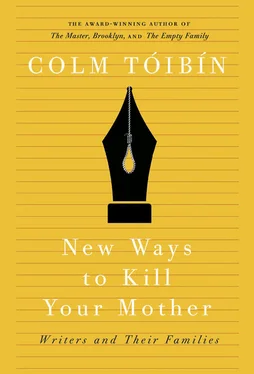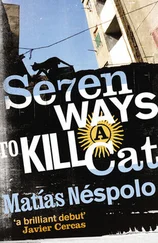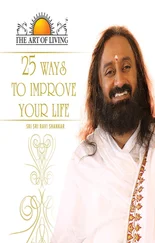From the Urals to Donegal the theme recurs, in Turgenev, in Samuel Butler, in Gosse. It is especially prominent in Ireland. George Moore, in his Confessions of a Young Man , blatantly proclaims his sense of liberation and relief when his father died. Synge makes an attempted parricide the theme of his Playboy of the Western World . James Joyce describes in Ulysses how Stephen Dedalus, disowning his own parent, searches for another father… Yeats, after handling the subject in an unpublished play written in 1884, returns to it in 1892 in a poem ‘The Death of Cuchulain’, turns the same story into a play in 1903, makes two translations of Oedipus Rex , the first in 1912, the second in 1927, and writes another play involving parricide, Purgatory , shortly before his death.
In the autumn of 1828, when Henry James Senior, the father of the novelist, briefly attended Union College in Schenectady, New York, he entered fully into student life, drinking in taverns and having expensive suits made by the local tailor. He charged it all to his father, William, who was so wealthy that he owned the very land on which the campus of Union College was built. William James, who had been born in Bailieborough in County Cavan, was also one of the two trustees of the college.
Henry James Senior’s departure from Union College, not long after his arrival, was the beginning of a lifelong journey in search of freedom of thought, eternal truth and interesting companions who were good listeners. James, like John Butler Yeats, the father of W. B. Yeats, was a great talker. There are a number of resemblances between the two men. Each of them, for example, married the sister of a classmate to whom he was close. Both of them suffered from, and also enjoyed, a lifelong indolence and restlessness; they dominated their households but failed, or seemed to fail, in the larger world; they sought self-realization through art and religion despite family traditions of commerce and industry.
Both men created households where artists and writers visited and where becoming an artist was a natural development. Both men believed that the self was protean and they opposed both the settled life and the settled mind. Thus neither Henry James the novelist nor William Butler Yeats benefited from, nor had his mind destroyed by, a university education. Their fathers, believing themselves to be formidable institutions of higher learning in their own right, had no interest in exposing their sons to any competition. Both fathers were ambitious but almost incapable of bringing a large project to fruition. Talking for both took the place of doing, but both men were also capable of writing sentences of startling beauty. Both men loved New York, not for its intellectual life but for its crowded street-life, which they observed with fascination. Henry James Senior believed (or, to amuse a listener, claimed to believe) that the companionship of the crowded horsecar was the nearest thing to heaven on earth he had ever known. Their friends viewed both men as supremely delightful fellows; their company was much sought after. They both believed passionately in the future, seeing their children as fascinating manifestations of its power and possibility, at times much to their children’s frustration. They were both capable of real originality. On 4 June 1917, for example, before his son wrote his poem ‘The Second Coming’, John Butler Yeats wrote to him: ‘The millennium will come, and come it will, when Science and applied Science have released us from the burthens of industrial and other necessity. At present man would instantly deteriorate and sink to the condition of brutes if taken from under the yoke and discipline of toil and care.’ In a similar vein, Henry James Senior in 1879, almost two decades before his son wrote The Turn of the Screw , wrote the following account of a terror that came upon him on an ordinary evening in a rented house in Windsor Park:
To all appearances it was a perfectly insane and abject terror, without ostensible cause, and only to be accounted for, to my perplexed imagination, by some damned shape squatting invisible to me within the precincts of the room, and raying out from his fetid personality influences fatal to life. The thing had not lasted ten seconds before I felt myself a wreck, that is, reduced from a state of firm, vigorous, joyful manhood to one of almost helpless infancy.
Henry James Senior had five children and John Butler Yeats six, although two of the Yeats children died in infancy. Both men had a daughter in possession of a rich and sharp and brittle intelligence, so brittle indeed that it would somehow prevent both Lily Yeats and Alice James from separating from their families; both women had a magnificent and acid epistolary style. Both fathers cared, it seemed, more about their two elder children than the rest of their brood: William and Henry James and W. B. and Lily Yeats were treated differently than their younger siblings. John Butler Yeats and Henry James Senior each fathered two genius sons, four men — Henry and William James, W. B. and Jack Yeats — who specialized, unlike their fathers, perhaps almost in spite of their fathers, in finishing nearly everything they started. Three of them developed a complex, daring and extraordinary late style. All four boys studied art; William James had serious ambitions to be a painter. Two of them — W. B. Yeats and William James — began by dabbling in magic and mystical religion and went on to make it an important aspect of their life’s work. While all four men were greatly influenced by their respective fathers — sometimes the influence was negative — they had hardly anything to say about their respective mothers. Both fathers employed the Atlantic Ocean as a weapon in their arsenal, John Butler Yeats using it as a way of getting away from his family in old age; Henry James Senior using it as a way of further unsettling his unsettled children.
Although Henry James the novelist saw a great deal of Lady Gregory in London in the 1880s and 1890s, he was not a friend of W. B. Yeats. By the time Yeats began to flourish in London, James had withdrawn to Rye. James, however, attended a performance of Yeats’s play The Hour-Glass in Kensington in May 1903, and in 1915 he contacted Yeats on behalf of Edith Wharton, asking for a poem for a fund-raising anthology for the war effort. John Butler Yeats had strong views on the question of Henry James. In July 1916 he wrote to his son: ‘I have just finished a long novel by Henry James. Much of it made me think of the priest condemned for a long space to confess nuns. James has watched life from a distance.’ When James’s unfinished third volume of autobiography was published posthumously, John Butler Yeats wrote to a friend: ‘Some believe that this war is a blessing disguised. It is enough for me that it stopped Henry James writing a continuation of “The Middle Years”.’ Two years earlier, he wrote to his son the poet: ‘Thinking about H James, I wonder why he is so obscure and why one’s attention goes to sleep or wanders off when trying to make him out… In James, it is his cunning to make suspense dull, tiresome, holding you in spite of yourself.’
When an exasperated John Quinn, the New York lawyer and art collector, wished to describe John Butler Yeats’s endless and expensive stay in New York, he used James as his literary model. ‘The whole damn thing,’ Quinn wrote, ‘would make a perfect Henry James novel, and how he would get under your skin!’ Quinn made himself the Ambassador and John Butler Yeats the Lama:
And so the book comes to a triumphant close, with the victory of the Lama over his family, over the Ambassador, over the Doctor, over the nurse, and over his friends, it all being a triumphant vindication of the philosophy of the ego, of the victory of the man who regards only himself, of the man who does not care for others when they cease to amuse him, the artist’s ego, the ego parading in the poet’s singing robes, and — to use a vulgarism which Henry James would, I am sure, hugely enjoy — the egotist in his singing robes, crowned with laurel, the consummate artist, the playboy of West 29th Street, the youth of eighty without a care, with never a thought of his family or his friends, with eternal self-indulgence, with an appetite for food and drink at the age of eighty that is the envy of his younger friends and the despair of the Ambassador; this young man who has enjoyed fifty years of play and talk and health and high spirits and wine and drink and cigars, the man who enjoys the evasions of the artist — he ‘gets away with it’, as Henry James would say.
Читать дальше












